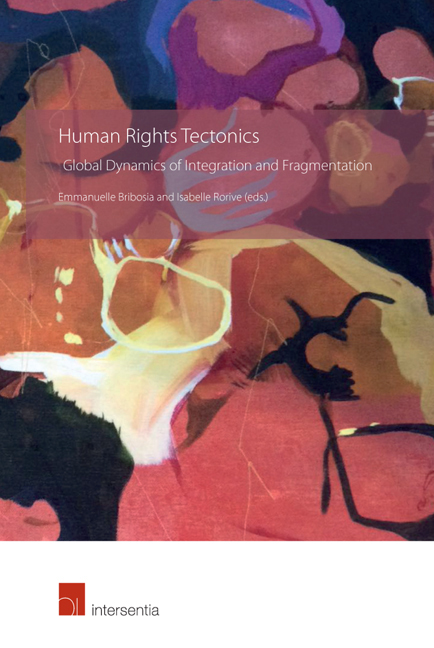Book contents
- Frontmatter
- Foreword
- Contents
- List of Cases
- List of Contributors
- Introduction to Human Rights Tectonics
- PART I PROMISES AND CHALLENGES OF AN INTEGRATED APPROACH TO HUMAN RIGHTS
- PART II HUMAN RIGHTS TECTONICS THROUGH AN ISSUE-BASED APPROACH
- PART III HUMAN RIGHTS DYNAMICS IN EUROPE
- The European Union in the International System of Human Rights Protection: Solo Singer or Voice in the Choir?
- Opinion 2/13 as a Game Changer in the Dialogue between the European Courts?
- Sharing of the Burden of Proof in Cases on Racial Discrimination: Concepts, General Trends and Challenges before the ECtHR
- Rethinking the Two Margins of Appreciation
- About the Editors
Opinion 2/13 as a Game Changer in the Dialogue between the European Courts?
from PART III - HUMAN RIGHTS DYNAMICS IN EUROPE
Published online by Cambridge University Press: 31 January 2019
- Frontmatter
- Foreword
- Contents
- List of Cases
- List of Contributors
- Introduction to Human Rights Tectonics
- PART I PROMISES AND CHALLENGES OF AN INTEGRATED APPROACH TO HUMAN RIGHTS
- PART II HUMAN RIGHTS TECTONICS THROUGH AN ISSUE-BASED APPROACH
- PART III HUMAN RIGHTS DYNAMICS IN EUROPE
- The European Union in the International System of Human Rights Protection: Solo Singer or Voice in the Choir?
- Opinion 2/13 as a Game Changer in the Dialogue between the European Courts?
- Sharing of the Burden of Proof in Cases on Racial Discrimination: Concepts, General Trends and Challenges before the ECtHR
- Rethinking the Two Margins of Appreciation
- About the Editors
Summary
Just before Christmas 2014, the Court of Justice of the European Union (CJEU) unexpectedly put a stop to the European Union's (EU) accession to the European Convention of Human Rights (ECHR). It declared the agreement on the accession of the EU to the ECHR to be incompatible with the specific characteristics and autonomy of EU law in Opinion 2/13. This Opinion reflects the increasing worries of the CJEU about the sometimes far-reaching case law of the European Court of Human Rights (ECtHR), which could hamper the effectiveness of EU law. This tension has become especially visible in the Area for Freedom Security and Justice in cases dealing with the Dublin Regulation and the European Arrest Warrant. While the CJEU has to balance the uniformity, primacy and effectiveness of EU law, and the upholding of the system based on mutual trust and mutual recognition with fundamental rights concerns, the ECtHR's sole objective is to guarantee the latter. CJEU judges expressed their concern that the ECtHR does not always take the particularities of EU law, such as mutual trust in the context of the Dublin system, sufficiently into account, because some Strasbourg judges are not familiar with them. There has also been growing uneasiness in Luxembourg with the intrusive case law of the ECtHR in relation to the preliminary reference procedure in Article 267 of the Treaty on the Functioning of the European Union (TFEU). This is because the ECtHR found violations of Article 6 ECHR in Dhahbi and Schipani for the failure of the highest Italian court to provide a statement of reasons for its refusal to request a preliminary ruling from the CJEU on the basis of Article 267 TFEU. Similar frustration exists in Strasbourg vis- a -vis the CJEU and especially Opinion 2/13, which was not received warmly. Dean Spielmann, former President of the ECtHR, stated that it was ‘a great disappointment’ and held that the ‘the onus will be on the Strasbourg Court to do what it can in cases before it to protect citizens from the negative effects of this situation’.Against this background, it is not surprising that the official contacts between the CJEU and the ECtHR were only resumed in March 2016, when a delegation from the ECtHR visited the CJEU.
- Type
- Chapter
- Information
- Human Rights TectonicsGlobal Dynamics of Integration and Fragmentation, pp. 243 - 270Publisher: IntersentiaPrint publication year: 2018



